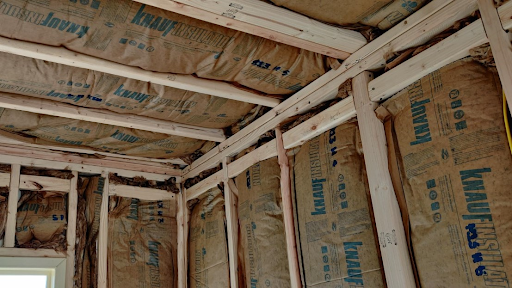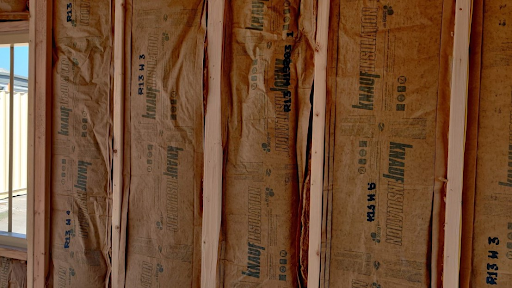Do Shipping Containers Need Fiberglass Insulation Fabrication?
Get a quoteFiberglass Insulation Fabrication for Shipping Containers: Is It Needed?
Key Takeaways
- Fiberglass insulation helps maintain the internal temperature of shipping containers to reduce heating and cooling costs.
- Insulation is important for containers used in extreme climates or for sensitive cargo.
- Fiberglass insulation is cost-effective, durable, and environmentally friendly.
- Conexwest provides R-13 fiberglass insulation with a moisture barrier and excellent recovery characteristics.
What is Fiberglass Insulation?
Fiberglass insulation is a type of material made from fine glass fibers. It's commonly used to insulate buildings, but it’s also highly effective for shipping containers. By trapping air pockets, fiberglass reduces the transfer of heat and keeps the interior temperature stable.
Composition
Fiberglass insulation is primarily composed of recycled glass fragments and sand, which are melted and spun into fibers. This process creates a lightweight material that can trap air within its structure to improve its insulating properties.
How it Works
The effectiveness of fiberglass insulation lies in its ability to trap air within its tiny glass fibers. This trapped air creates a network of small pockets that impede the flow of heat and sound. The material's performance is quantified using the R-value, which measures its resistance to heat flow; higher R-values indicate better insulating properties.
Conexwest, a leader in shipping and storage solutions based in Northern California, offers new, used, and refurbished containers from 10ft to 45ft, with fast delivery within 3-7 days and container fabrication options like adding shelves and locks. Conexwest serves over 10,000 national customers, including prestigious clients like the U.S. Navy and Google. As an ISO 9001 and AWS-certified company, we ensure top quality and competitive pricing. |
When You Need Fiberglass Insulation

Fiberglass insulation is suitable for containers exposed to extreme weather conditions
- Climate-Controlled Environment: If the shipping container is intended for uses that require climate control - such as storing sensitive cargo, creating a living space, or setting up an office - insulation is essential. Fiberglass insulation helps retain cooled or heated air to prevent extreme temperature fluctuations that could damage contents.
- Extreme Weather Conditions: In regions with harsh climates, whether hot or cold, insulation becomes critical. Fiberglass insulation acts as a thermal barrier to reduce heat transfer and help maintain a more consistent internal temperature.
- Long-Term Use: Containers repurposed for long-term applications, such as homes or workshops, benefit from insulation to improve comfort and energy efficiency. Insulating these containers can significantly reduce energy costs associated with heating and cooling.
- Moisture Control: In humid environments, fiberglass insulation can help manage moisture levels inside the container, which reduces the risk of mold and mildew. It stabilizes temperatures to prevent condensation on the container walls.
When You Do Not Need Fiberglass Insulation
- Short-Term Storage: If the container is used for short-term storage of items that are not sensitive to temperature changes, insulation may not be necessary. For example, storing tools or equipment that can withstand temperature fluctuations might not require insulation.
- Mild Climates: In regions with mild weather, where temperature extremes are minimal, the need for insulation may be reduced. Containers used in such climates might not experience significant temperature fluctuations.
- Non-Habitable Uses: If the container is being used purely for storage of non-perishable goods or as a temporary site for construction materials, insulation may not be essential. The primary concern in these cases is often security and protection rather than temperature control.
- Cost Considerations: For budget-conscious projects, especially those that do not require climate control, opting out of insulation can save on initial costs. However, this may lead to higher energy costs in the long run if heating or cooling becomes necessary later on.
Advantages of Using Fiberglass Over Other Insulation Methods
Thermal Performance
Fiberglass insulation has excellent thermal resistance with a high R-value. This helps maintain a stable internal temperature to keep the container comfortable in both hot and cold climates. Fiberglass effectively reduces heat transfer and minimizes the need for additional heating or cooling.
Cost-Effectiveness
Fiberglass insulation is one of the most affordable insulation options available - the material itself is inexpensive, and installation is relatively straightforward.
Ease of Installation
Fiberglass insulation comes in pre-cut batts or rolls that are simple to install. It can be easily placed between the container's framing members, such as studs or joists, without requiring specialized equipment. This makes fiberglass a popular choice for those who want their shipping container insulation done quickly.
Moisture Resistance
While fiberglass insulation can absorb some moisture, it does not promote mold or mildew growth. When properly installed with a vapor barrier, fiberglass insulation can prevent condensation buildup inside the container - reducing the risk of moisture-related damage to the structure or contents.
Availability
Fiberglass insulation is widely available from various manufacturers and retailers. It can be easily sourced from local hardware stores or insulation suppliers.
How Conexwest Can Help with Shipping Container Fabrication

Conexwest provides R-13 fiberglass insulation.
At Conexwest, we specialize in shipping container fabrication and provide a comprehensive range of services. Whether you're looking to improve your storage capabilities or transform a container for a specific application, we are here to help.
Customization Options
You can add features such as windows, vents, partitions, shelving systems, and even customized paint to create a storage unit that perfectly fits your requirements.
Expertise and Reliability
Our dedicated fabrication shops across the country are staffed with highly skilled technicians and craftsmen who receive continual training on the latest container trends and technology. This is how we deliver top-quality production that you can rely on for years of use.
Quick Installation Process
We handle everything from the initial consultation to the final installation so that your container is ready for use as quickly as possible. Our team uses high-quality materials and follows stringent standards to guarantee the best results.
Transparent Pricing and Warranty
We believe in providing you with upfront and transparent pricing for all our services. Additionally, we offer a warranty coverage period of 10 years for new ISO shipping containers and 5 years for used cargo-worthy containers so that your investment is protected against defects in material or workmanship.
If you have any questions about your shipping container project or would like to receive an all-inclusive price quote, don’t hesitate to contact us at (855) 878-5233 or email us at quote@conexwest.com. We are committed to providing you with the best service possible and look forward to helping you with your shipping container fabrication needs.
Frequently Asked Questions (FAQs)
- What is fiberglass insulation made of?
Fiberglass insulation is primarily composed of recycled glass fragments and sand, which are melted and spun into fibers. This process creates a lightweight material that can trap air within its structure to improve its insulating properties.
- How is fiberglass insulation installed?
Fiberglass insulation is typically installed in batts or rolls between framing members in walls, ceilings, and floors. It can also be blown into attics and wall cavities as loose fill. Proper installation is important for maximizing the effectiveness of the insulation and preventing air leaks.
- Is fiberglass insulation safe for the environment?
Yes, fiberglass insulation is considered environmentally friendly. It's made from recycled glass and has a lower environmental impact compared to other insulation materials. Additionally, its energy-saving properties contribute to reducing overall carbon footprints.
- How long does fiberglass insulation last?
Fiberglass insulation is designed to last for many years without significant degradation, provided it is installed correctly and maintained in a dry condition. With proper care, fiberglass insulation can continue to provide effective thermal and acoustic insulation for decades.
- What types of containers are available with Conexwest?
We provide various types of containers, including new, used, refurbished, and modified containers. Options include standard containers, high cube containers, refrigerated units, and mobile offices, among others.
